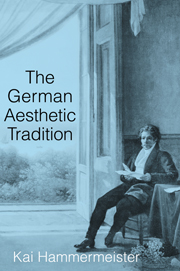10 - Adorno
Published online by Cambridge University Press: 14 January 2010
Summary
Art and Society
In Theodor W. Adorno's (1903–1969) philosophy, we find much the same gesture as in Heidegger when it comes to the inheritance of classical German philosophy. While Adorno sets himself in a position of both opposing and continuing idealism, he tends to gloss over his debts to early romantic aesthetics. Although Schelling is mentioned with approval several times in Ästhetische Theorie (Aesthetic theory, 1970), Adorno is very shy in spelling out his reliance on the philosophy of art of the former as an “organon of truth.” Instead, throughout his philosophical and critical writings, Adorno's struggle with Hegel occupies a place in the foreground. His 1966 Negative Dialectics is written with the aim of inheriting, as well as dismantling, Hegel's legacy. Here, Adorno attempts to prove that the dialectical model with its synthesis as reconciliation always produces a totality that does injustice to those moments that necessarily escape the concept. Hegelian dialectics reduces all individuality to something that can be subsumed under a concept to be then integrated into a general movement. Against this idealist heritage Adorno pitches his own conception of philosophy: “Philosophy's true interest at this historical moment lies where Hegel, agreeing with tradition, demonstrated his disinterest: with the concept-less, singular and specific.” Adorno terms this singularity that remains irreconcilable with conceptual thought the nonidentical, a term that resurrects Kant's noncognizable thing-in-itself against Hegel's totalizing dialectics, and that also plays a prominent role in Adorno's theory of art.
- Type
- Chapter
- Information
- The German Aesthetic Tradition , pp. 194 - 212Publisher: Cambridge University PressPrint publication year: 2002

